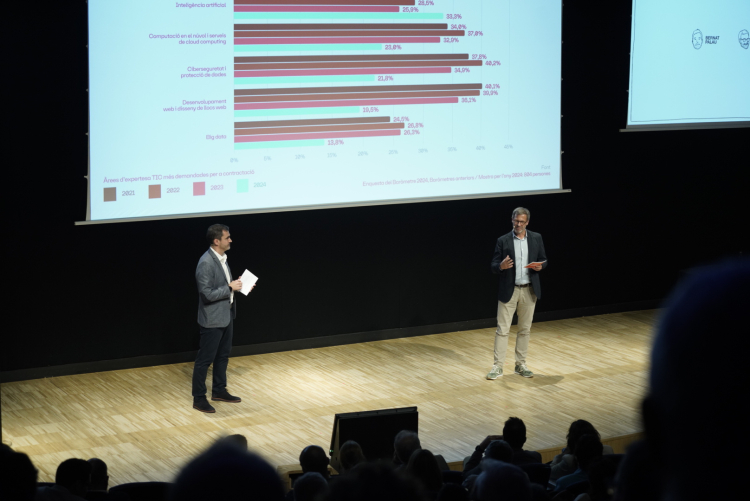Last Tuesday, July 2, the Cercle Tecnològic de Catalunya, with the support of the Secretariat of Digital Policies of the Generalitat de Catalunya and Barcelona City Council, presented the main results of the ICT Barometer 2024, the reference tool for the study of the technological and digital sphere of Catalonia. The aim is to have a representative study that provides a broad view of the main indicators in the technological and digital sphere of Catalonia. The report takes a picture of the Catalan technological ecosystem and shows the future trends of innovation and the future fields of evolution of the technological sector of Catalonia. The study becomes an excellent framework for generating a reflection on the reality of the technological field and its capacity for improvement and growth.
One of the conclusions of the ICT Barometer 2024 was that the Catalan ICT sector closed the year 2023 with a contribution to GDP of 9%, a figure that could have risen to 9.56% if all had been covered the jobs created by the ecosystem. In 2023, the technology industry had an average of 9,231 unfilled vacancies, which could have added 1,805 million euros more to the 26,446 million euros of global turnover. The data confirmed how the lack of available talent limits the growth potential of the Catalan ICT sector, even though in 2023 it recorded the highest turnover growth of the last five years. Along these lines, the report confirmed the good state of health of the Catalan ICT sector. Turnover growth of 12.5% placed the sector ahead of the chemical industry, automotive and construction. This increase was also reflected in the number of companies, 17,854 companies, and in the number of workers, 135,200 people.
Likewise, the TIC 2024 Barometer positioned artificial intelligence as the technology that aspires to cause more changes in the future. 33.3% of the companies surveyed ranked it first as an area that will demand more professionals in the coming years. Sustainability was another trend he had highlighted in the technology industry. 95% of the companies surveyed stated that reducing the ecological footprint caused by ICT was one of their priorities. Mainly, they did it by influencing energy savings and promoting a more efficient management of the waste generated. The study concluded that there was still a need for greater collective awareness of the energy consumption involved in the computing power and data storage required by artificial intelligence and big data.



